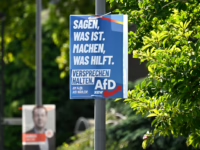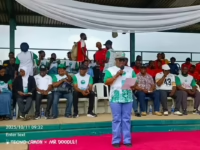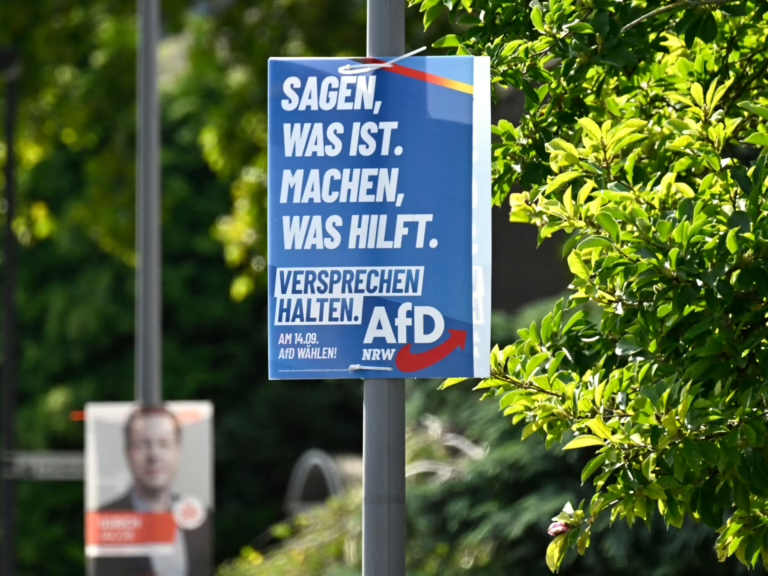In the border city of Frankfurt an der Oder, the mayoral race is a contest between Independent Axel Strasser and AfD candidate Wilko Moller.
Residents of Frankfurt an der Oder, an eastern German city adjacent to Poland, participated in a decisive run-off election that could mark a historic first: the far-right Alternative for Germany (AfD) party potentially securing its inaugural mayoral seat in a German urban center.
The runoff on Sunday featured Independent Axel Strasser and AfD’s Wilko Moller, who emerged as the top two candidates from the initial round held on September 21, where Strasser garnered 32.4% and Moller 30.2% of the votes.
Notably, candidates representing the centre-right Christian Democratic Union (CDU) and the centre-left Social Democratic Party (SPD) were eliminated in the preliminary round.
This election follows closely on the heels of a Bundestag decision to revoke parliamentary immunity from two AfD members-one facing defamation charges and the other accused of performing a Nazi salute, an act prohibited under German law.
Jan Philipp Thomeczek, a political analyst at the University of Potsdam, told dpa that a win for Moller would be a powerful indicator of the AfD’s ability to gain traction in metropolitan areas, challenging the party’s traditional rural strongholds.
Frankfurt an der Oder, situated in Brandenburg state on Germany’s eastern frontier with Poland, should not be confused with Frankfurt am Main, the major financial metropolis in western Germany.
According to the German Association of Towns and Municipalities, no AfD-affiliated politician currently holds the mayoralty of a major German city.
While Tim Lochner, who was nominated by the AfD in 2023, serves as mayor of Pirna near the Czech border, he officially holds the status of an independent.
Elsewhere, Robert Sesselmann, an AfD member, administers the Sonneberg district in Thuringia, and the party also controls mayoral offices in smaller municipalities within Saxony-Anhalt.
In May, Brandenburg’s domestic intelligence agency officially designated the state branch of the AfD as “confirmed far-right extremist,” a characterization the party vehemently disputes, labeling it a politically motivated effort to sideline them.
The agency’s extensive 1,100-page confidential report concluded that the AfD promotes racist and anti-Muslim ideologies.
This classification subjects the party to increased surveillance and has reignited debates about the possibility of banning the AfD, which has responded by legally contesting the intelligence service’s findings.
U.S. Secretary of State Marco Rubio condemned the designation as “tyranny disguised,” urging German officials to reconsider the decision.
Germany’s Federal Foreign Office retorted by advising the Trump administration to reflect on historical lessons, emphasizing the necessity of combating right-wing extremism.
The Kremlin also criticized the move against the AfD, which often echoes Russian perspectives on the Ukraine conflict, framing it as part of a wider clampdown on political groups across Europe.
Brandenburg authorities accuse the AfD of undermining governmental institutions, with the state’s domestic intelligence head, Wilfried Peters, asserting that the party promotes exclusion and discrimination against those outside the “German mainstream.”
Polling stations closed at 6 p.m. local time (16:00 GMT), with election results anticipated later that evening.






















